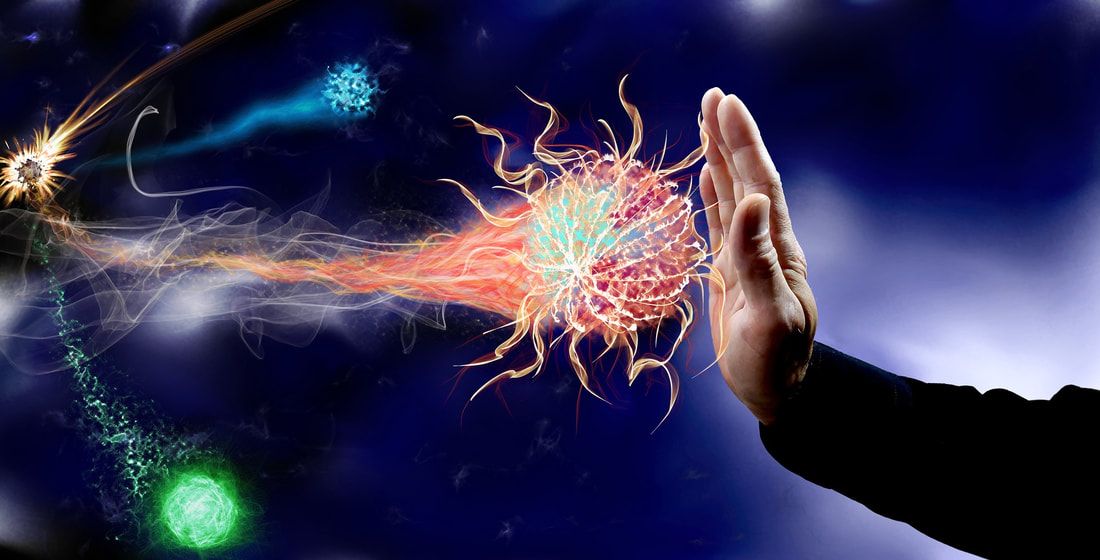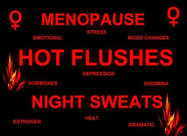 We're not quite there yet, but the change of clocks and the change of season can bring with it particular health challenges. The onset of autumn and winter mean: shorter days; colder weather; lack of light; less fresh air; comfort food; less opportunity for exercise; and lots more coughs and colds doing the rounds. Now is the time get ahead of the game and boost your immune system to ensure you stay healthy this winter. Did you know, your body can produce 1,000,000 antibodies within a minute? This ability to react rapidly to a new invader makes all the difference between a minor twenty-four hour cold or stomach but and a week in bed with flu or food poisoning. Patrick Holford, well-known nutritionist says, "Exercise, your state of mind, and your diet, all play a part in boosting your immune power." Vigorous exercise can actually suppress the immune system, while Tai-chi has been shown to increase the count of T-cells by 40%. More calming and less stressful forms of exercise are probably best for immunity. Learning how to deal with stress, coping with psychological issues and regular relaxation are important to boosting the immune system. If you find it difficult to relax, why not try Reflexology and Indian Head Massage? A good, high strength, multivitamin and mineral supplement will help optimise your intake of immune boosting Vitamins A, B6, C, E, Zinc and Selenium. Also the herbal remedy Echinacea is thought to help prevent colds, although there's no clear scientific evidence to support this. Get outside every day, regardless of the weather, to top yourself up with daylight and fresh air. Even 15 or 20 minutes at lunchtime can help to boost your immune system if you get into a daily routine. Make sure your diet includes plenty of: carrots, beetroot, sweet potatoes; tomatoes; beansprouts; watermelon; oranges; kiwi; lentils; beans; brown rice; and fish. And of course, make sure you get plenty of sleep because your body does most of it's repair and renewal activity while you sleep. And a positive mental attitude helps - if you think you're going to get a cold, it's much more likely that you will. So start now to look after your health for winter and you'll reap the benefits in the months to come.
0 Comments
 I've just finished reading an article in an old Association of Reflexologists magazine which reports on a very small uncontrolled study of 7 women who underwent 6 x weekly, 30 minute treatments of Reflexology for symptoms of menopause. The author concluded "While this is a small uncontrolled study, it does suggest that both the severity and frequency of a range of symptoms associated with the menopause may benefit from a course of reflexology treatments." Symptom Reduction Number Treated Agree Positive Changes Hot flushes 7 57% Mood swing frequency 7 57% Mood swing severity 7 71% Insomnia 6 50% Headaches 3 66% Vaginal/bladder 3 66% Fatigue frequency 5 40% Fatigue severity 5 80% Forgetfulness 6 66% And the participants commented: "Hot flushes reduced in severity and frequency, thereby reduced feelings of being overwhelmed by the changes in my body! I therefore felt in control again, able to cope and enjoy my life." "I believe that the treatment has 'toned down' the general range of symptoms and made them more manageable … it felt very beneficial." Although my personal opinion and experience with Reflexology would support the above, I'd also recommend a multi-faceted approach incorporating reflexology, diet, nutritional supplements, herbs and environment. Reflexology As you can see from the comments above, Reflexology can provide a balancing and harmonising effect which may help to moderate some of the less pleasant symptoms of menopause. Diet Aim for a healthy, balanced diet which is designed to regulate blood sugar as this will help support adrenal health - the adrenal glands can be put under a lot of pressure from the hormonal changes that take place. Avoid caffeine and sugary foods, reduce dairy and red meat and avoid refined foods. Eat a high fibre diet with lots of fruit and veg, whole grain and legumes as fibre binds to oestrogen, so it excretes more efficiently and also helps to keep blood sugar stable. Nutritional Supplements Supplements important to support menopause are: Vitamins C (with bioflavonoids), E, B Complex, Magnesium, Calcium and Omega 3. A qualified nutritionist can help with more specific recommendations on diet and supplements. Herbs Herbs which are commonly acknowledged to support menopause are: Black Cohosh, Agnus Castus, Dong Quai, Sage and Milk Thistle. These can be powerful and have adverse and toxic effects, so are best used under the supervision of a herbalist. They should not be taken in conjunction with The Pill, Fertility Drugs, HRT or any other hormone treatments/medication. Environment As much as possible reduce the xenoestrogens (environmental oestrogens) around the home. These artificial oestrogens are found in: pesticides, herbicides, and fungicides (wash non-organic food well with a biodegradable non-toxic solution); plastic goods (which can leach xenoestrogens into the environment); creams and cosmetics that have parabens and stearalkonium chloride (cheap brands tend to include more toxic ingredients); nail polish and nail polish removers; fluoride; don't leave plastic containers, especially your drinking water, in the sun; fabric softeners (they contain petrochemicals that are absorbed by the skin); microwaving food in plastic containers - especially avoid the use of plastic wrap to cover food for microwaving; computer monitors, tvs, etc. that emit high levels of Electromagnetic Fields (EMFs). This multi-faceted approach offers a holistic way to support the body through menopause and reduce the more extreme and uncomfortable symptoms. More more information on how Reflexology might be able to support you through menopause, contact Doris Wylie at [email protected]. |
|
